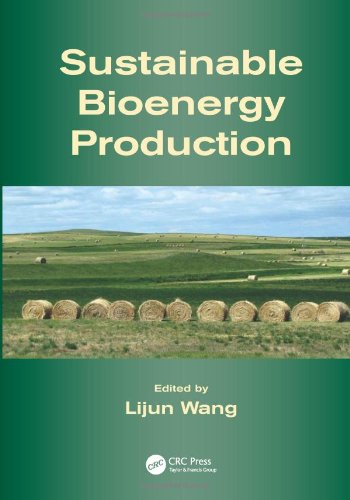

Most ebook files are in PDF format, so you can easily read them using various software such as Foxit Reader or directly on the Google Chrome browser.
Some ebook files are released by publishers in other formats such as .awz, .mobi, .epub, .fb2, etc. You may need to install specific software to read these formats on mobile/PC, such as Calibre.
Please read the tutorial at this link: https://ebookbell.com/faq
We offer FREE conversion to the popular formats you request; however, this may take some time. Therefore, right after payment, please email us, and we will try to provide the service as quickly as possible.
For some exceptional file formats or broken links (if any), please refrain from opening any disputes. Instead, email us first, and we will try to assist within a maximum of 6 hours.
EbookBell Team

4.8
34 reviewsGiven the environmental concerns and declining availability of fossil fuels, as well as the growing population worldwide, it is essential to move toward a sustainable bioenergy-based economy. However, it is also imperative to address sustainability in the bioenergy industry in order to avoid depleting necessary biomass resources. Sustainable Bioenergy Production provides comprehensive knowledge and skills for the analysis and design of sustainable biomass production, bioenergy processing, and biorefinery systems for professionals in the bioenergy field.
Focusing on topics vital to the sustainability of the bioenergy industry, this book is divided into four sections: Fundamentals of Engineering Analysis and Design of Bioenergy Production Systems, Sustainable Biomass Production and Supply Logistics, Sustainable Bioenergy Processing, and Sustainable Biorefinery Systems. Section I covers the fundamentals of genetic engineering, novel breeding, and cropping technologies applied in the development of energy crops. It discusses modern computational tools used in the design and analysis of bioenergy production systems and the life-cycle assessment for evaluating the environmental sustainability of biomass production and bioenergy processing technologies.
Section II focuses on the technical and economic feasibility and environmental sustainability of various biomass feedstocks and emerging technologies to improve feedstock sustainability. Section III addresses the technical and economic feasibility and environmental sustainability of different bioenergy processing technologies and emerging technologies to improve the sustainability of each bioenergy process. Section IV discusses the design and analysis of biorefineries and different biorefinery systems, including lignocellulosic feedstock, whole-crop, and green biorefinery.